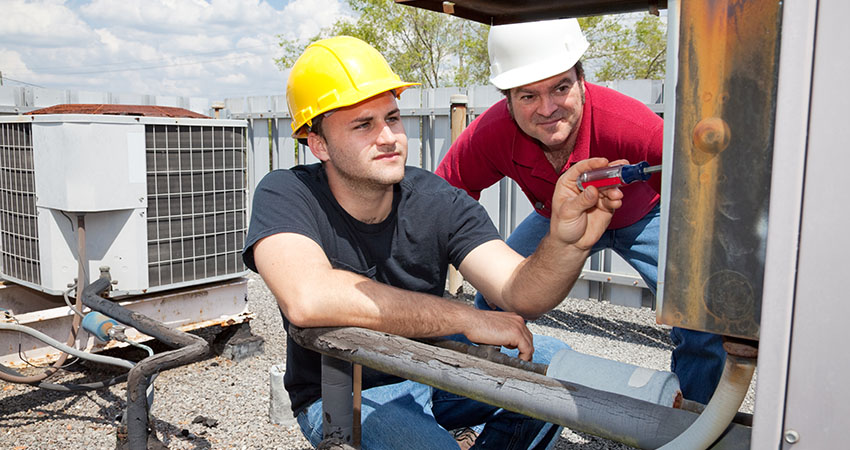Having a heat pump in the house can help keep it warm and cozy. These units not only keep the house warm during the winter season but also provide cool air in the summer season. However, sometimes, heat pumps develop a coating of ice that homeowners find worrying. What to heat pump repair services suggest? Let’s take a look into it.
It’s Normal For Heat Pumps To Ice Up In The Winter
The first thing you need to keep in mind is that it is normal for heat pumps to ice up in the winter season. There is nothing to worry about. If you own a newer model heat pump, it most likely features a defrost cycle that automatically heats up the unit to melt the ice.
The reason heat pumps develop a frost layer during the winter season is when the unit is heating your house and the refrigerant turns into a gas and condenses as it comes into contact with the outdoor coil. This condensation can easily freeze during the winter season.
How Does The Defrost Cycle Work?
The defrost cycle is a critical feature of heat pumps, especially where things can get really cold. As soon as the unit detects that it is icing up, it turns on the defrost cycle. The process simply involves reversing the refrigerant flow through the coils.
In simple terms, it means that the hot refrigerant is sent to the frozen coils. As a result, the hot refrigerant quickly melts any ice formed on the coils. Furthermore, heat pumps also come with temperature sensors. This allows the unit to keep track of the temperature of the coils.
So, if the coils were to freeze up, the defrost function will only work to the point where it melts the ice and won’t run continuously.
On average, each defrost cycle runs for 15 mins. Once the defrost function is turned off, the heat pump returns to its normal working position.
Can Ice Buildup Be A Problem?
Although, ice buildup is not a problem for heat pumps as the defrost cycle can fix the issue most of the time but there are some cases where the defrost cycle isn’t enough to melt away all the ice. In countries or regions, where extreme snowfall takes place, it becomes impossible for the defrost cycle to work alone.
Therefore, as the ice builds up on the heating unit, it could damage or cause the unit to malfunction. This means that the unit’s effectiveness to heat the house will be impaired as well. And if the ice or snow makes its way inside the unit, it could cause some serious damage such as broken fan blades or leaking refrigerant, etc.
How Do You Know When An Ice Buildup Is A Problem?
Even though, as mentioned earlier, it is normal for the heat pump to develop some ice but you should be concerned if you see signs such as the unit not being able to pull air through the fins, the entire heat pump being covered with ice and the defrost cycle is not turning on even if the unit is fully covered with ice.
In such a case, you will need to consult an expert. Too much ice can cause several types of problems with your heat pump and it is important that you attend to it as soon as possible instead of waiting for the problem to fix on its own.
How To Prevent Ice Buildup Or Freezing Of Your Heat Pump?
To prevent your heat pump from freezing up, you should make sure the air filters are regularly cleaned and the unit is inspected on a regular basis. At the same time, you should keep the heat pump functioning at a set temperature instead of turning it up and down frequently. And finally, schedule expert maintenance at least once a year to ensure the unit is clean from the inside out.
More importantly, if the outdoor unit of the heat pump is close to trees, shrubs and bushes, etc. make sure they are trimmed to prevent dead branches or leaves from making their way inside during extreme weather conditions.
Final Word
Concluding, heat pumps freezing up is not much of a concerning problem as much as ignoring it is. Always follow the user’s manual for proper maintenance and perform regular inspections to ensure the unit performs smoothly. Lastly, avoid DIYing and hire HVAC companies Tyson’s Corner for heat pump repairs.








